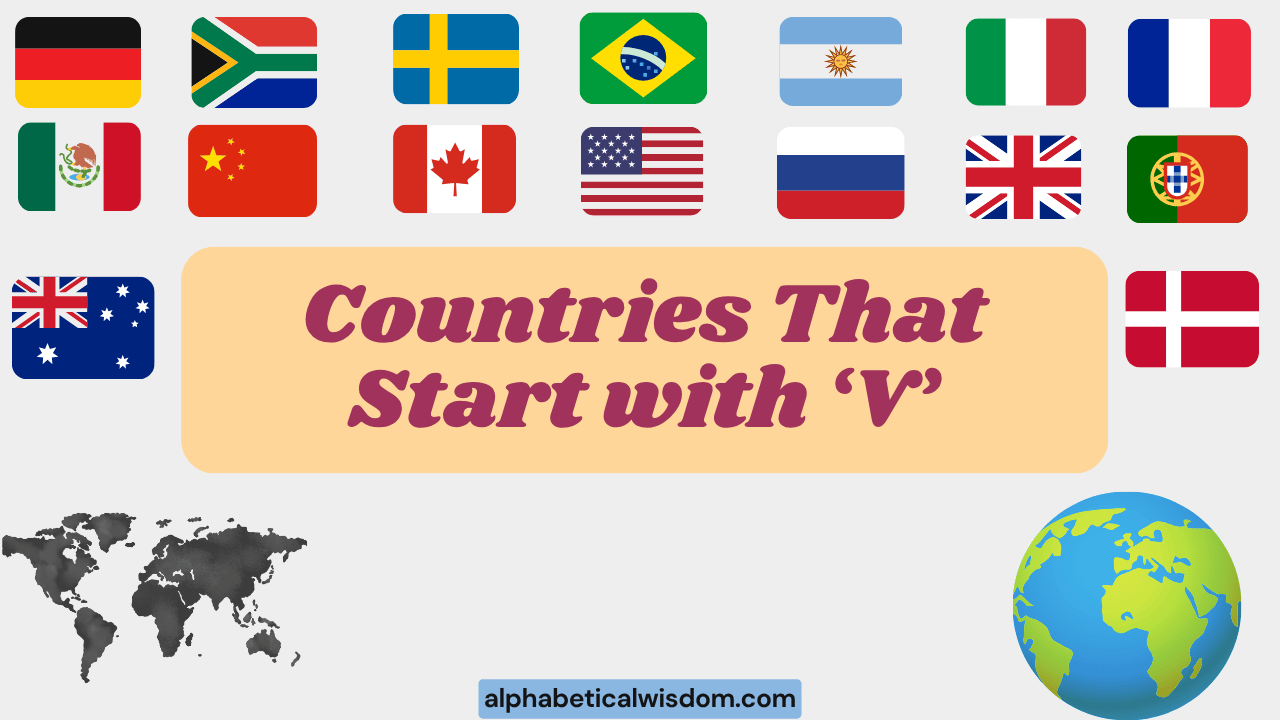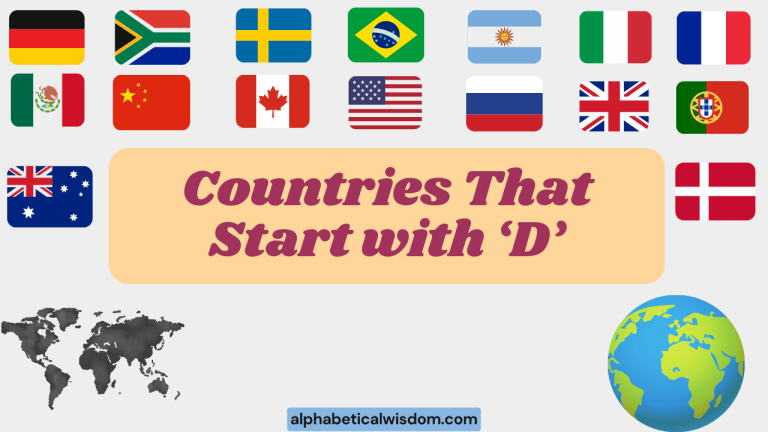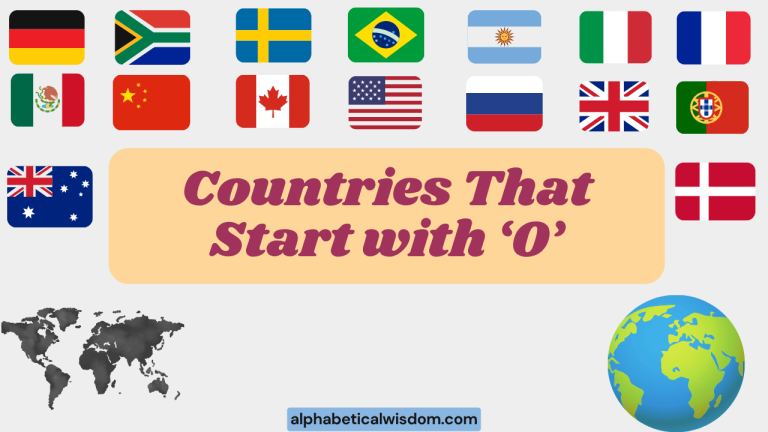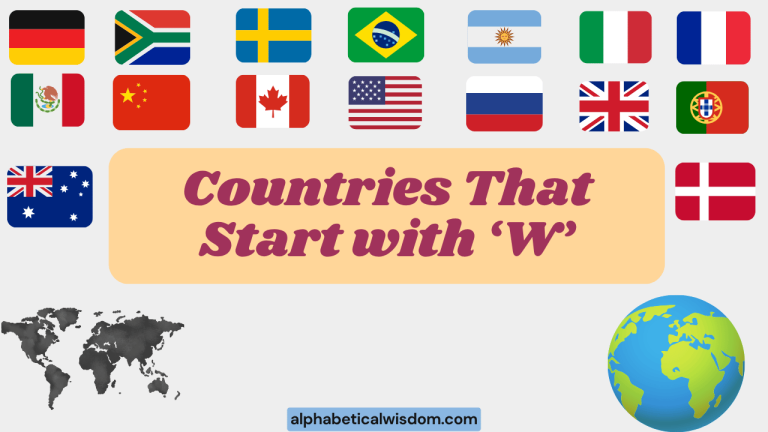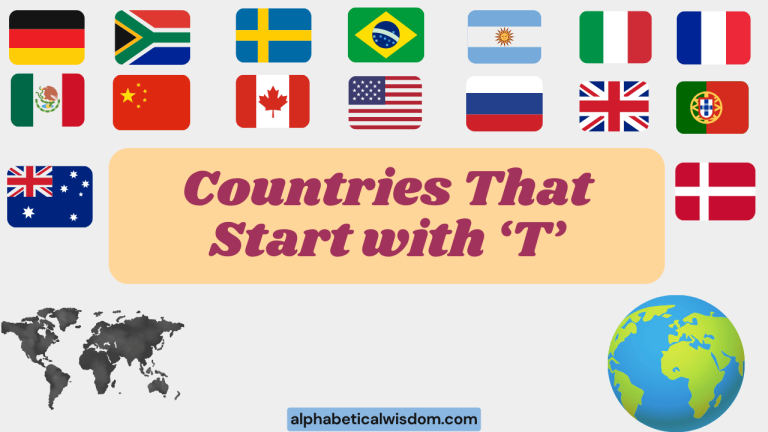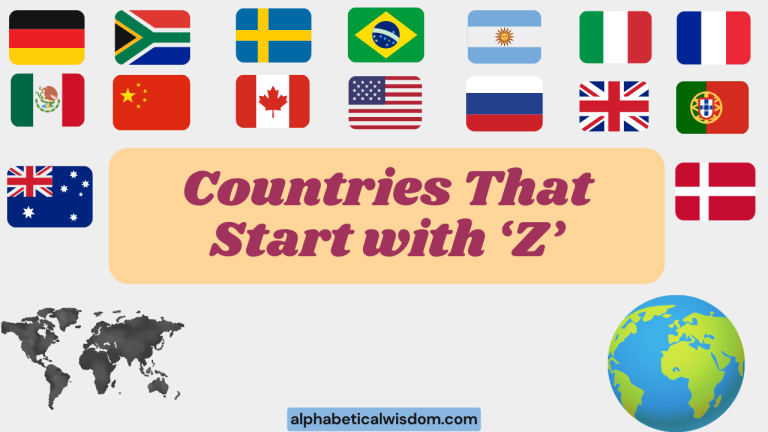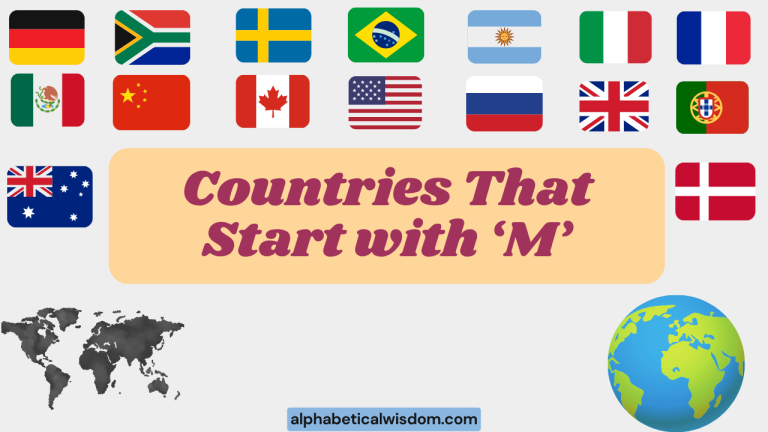Countries Starting With V: A Grammatical Exploration
Understanding how to use country names correctly is fundamental to English grammar. This article focuses on countries that begin with the letter “V,” exploring their grammatical properties and usage.
Mastering this topic will enhance your writing and speaking skills, ensuring accurate and confident communication. Whether you are a student, a language enthusiast, or a professional, this guide provides a comprehensive overview of the grammatical aspects of countries starting with “V.” By the end of this article, you’ll be equipped with the knowledge and skills to use these names confidently and correctly in various contexts.
This article delves into specific examples, common mistakes, and practical exercises to reinforce your learning. We will explore the correct use of articles, prepositions, and adjectives related to these countries.
The goal is to provide a clear and structured understanding that you can apply to real-world situations. By focusing on the nuances and subtleties of English grammar in relation to country names, this article aims to elevate your overall language proficiency.
Table of Contents
- Definition: Countries Starting With “V”
- Structural Breakdown
- Types and Categories
- Examples
- Usage Rules
- Common Mistakes
- Practice Exercises
- Advanced Topics
- FAQ
- Conclusion
Definition: Countries Starting With “V”
When discussing countries starting with the letter “V” in English grammar, we are referring to proper nouns that represent sovereign states whose names begin with “V.” These names function as subjects, objects, or complements within sentences. Understanding their grammatical role is crucial for constructing accurate and meaningful statements.
The primary countries that fall into this category are Vatican City and Vietnam.
These country names are generally treated as singular nouns. They can be modified by adjectives and used with various prepositions to indicate location, origin, or destination. For example, one might say, “Ancient Vatican City” or “I am traveling to Vietnam.” The correct usage of these names enhances clarity and precision in communication, whether in formal writing or casual conversation. This section provides a foundation for understanding how these specific nouns operate within the broader framework of English grammar.
Structural Breakdown
The structural breakdown of using countries starting with “V” involves understanding their role as nouns within a sentence. These nouns can function as subjects, objects, or complements. The structure often includes articles, prepositions, and adjectives that modify or relate to the country name. For instance, in the sentence “Vatican City is a small country,” “Vatican City” is the subject of the sentence.
Here’s a breakdown of common structural elements:
- Subject: Vietnam is known for its rich culture.
- Object: I want to visit Vatican City someday.
- Prepositional Phrase: The artifacts from Vietnam are fascinating.
- Adjective + Noun: Modern Vietnam attracts many tourists.
Understanding these structural elements allows for the construction of grammatically correct and varied sentences. The key is to recognize the noun’s function and use appropriate modifiers and prepositions to convey the intended meaning.
This structural awareness is essential for both writing and speaking effectively.
Types and Categories
While the number of countries starting with “V” is limited, it’s essential to understand their distinct characteristics. We can categorize them based on geographical location, cultural significance, and political status.
This categorization helps in understanding the context in which these country names are used.
Vatican City
Vatican City is an independent city-state enclaved within Rome, Italy. It is the smallest country in the world by both area and population. Its primary category is a city-state and a center of religious significance, being the home of the Pope and the Roman Catholic Church. Grammatically, it functions as a singular noun and is often preceded by adjectives that describe its size, history, or religious importance.
Vietnam
Vietnam is a Southeast Asian country known for its beaches, rivers, Buddhist pagodas, and bustling cities. Categorized as a developing nation with a rich history and diverse culture, Vietnam’s name is used in various contexts related to tourism, economics, and international relations. It also functions as a singular noun and can be modified by adjectives that describe its geography, economy, or culture.
Examples
This section provides extensive examples of how countries starting with “V” are used in different types of sentences. These examples illustrate the grammatical rules and patterns discussed earlier.
By examining these examples, you can gain a deeper understanding of how to use these country names effectively.
Declarative Sentences
Declarative sentences make statements. Here are examples using “Vatican City” and “Vietnam” in declarative sentences.
The table below shows a variety of sentences, demonstrating different contexts and usages.
| Sentence | Explanation |
|---|---|
| Vatican City is the smallest country in the world. | States a fact about Vatican City’s size. |
| Vietnam has a rich and complex history. | States a fact about Vietnam’s history. |
| Vatican City attracts millions of tourists every year. | Describes Vatican City’s popularity as a tourist destination. |
| Vietnam’s economy is rapidly growing. | States a fact about Vietnam’s economic growth. |
| Vatican City is the home of the Pope. | States a fact about Vatican City’s religious significance. |
| Vietnam is known for its delicious cuisine. | Describes Vietnam’s reputation for food. |
| Vatican City is a significant religious center. | Reinforces Vatican City’s importance in religion. |
| Vietnam’s landscape is incredibly diverse. | Describes the variety of Vietnam’s natural environment. |
| Vatican City operates under its own laws. | States a fact about Vatican City’s legal system. |
| Vietnam has a large population. | States a fact about Vietnam’s demographics. |
| Vatican City is a UNESCO World Heritage Site. | Highlights Vatican City’s cultural significance. |
| Vietnam exports a lot of rice. | States a fact about Vietnam’s economy. |
| Vatican City’s architecture is stunning. | Describes the aesthetic quality of Vatican City’s buildings. |
| Vietnam’s culture is deeply rooted in tradition. | Describes the cultural heritage of Vietnam. |
| Vatican City is an important pilgrimage site. | Reinforces Vatican City’s religious importance. |
| Vietnam is a popular destination for backpackers. | Describes Vietnam’s popularity among travelers. |
| Vatican City is surrounded by Rome. | States the geographical context of Vatican City. |
| Vietnam has a tropical climate. | Describes Vietnam’s weather. |
| Vatican City’s museums are world-renowned. | Highlights the quality of Vatican City’s museums. |
| Vietnam’s government is a socialist republic. | States a fact about Vietnam’s political system. |
| Vatican City is a sovereign state. | Reinforces Vatican City’s political status. |
| Vietnam is located in Southeast Asia. | States the geographical location of Vietnam. |
| Vatican City’s official language is Italian. | States a fact about Vatican City’s language. |
| Vietnam’s national language is Vietnamese. | States a fact about Vietnam’s language. |
| Vatican City is governed by the Pope. | Describes the governance of Vatican City. |
| Vietnam is known for its beautiful beaches. | Describes a popular feature of Vietnam. |
| Vatican City has its own postal service. | States a unique aspect of Vatican City. |
Interrogative Sentences
Interrogative sentences ask questions. Here are examples using “Vatican City” and “Vietnam” in interrogative sentences.
| Sentence | Explanation |
|---|---|
| Is Vatican City the smallest country in the world? | Asks a question about Vatican City’s size. |
| Have you ever been to Vietnam? | Asks about someone’s travel experience. |
| What is the population of Vatican City? | Asks for specific information about Vatican City. |
| Is Vietnam’s economy growing rapidly? | Asks about Vietnam’s economic status. |
| Can you visit Vatican City without entering Italy? | Asks about the accessibility of Vatican City. |
| Why is Vietnam famous for its cuisine? | Asks for a reason behind Vietnam’s culinary reputation. |
| Does Vatican City have its own currency? | Asks about Vatican City’s financial system. |
| Where in Vietnam would you recommend visiting? | Asks for a travel recommendation. |
| How old is Vatican City? | Asks about the age of Vatican City. |
| Is Vietnam a safe country to visit? | Asks about the safety of traveling in Vietnam. |
| Is Vatican City a member of the United Nations? | Asks about Vatican City’s international affiliations. |
| What are the main exports of Vietnam? | Asks about Vietnam’s economic activities. |
| Who governs Vatican City? | Asks about the governance of Vatican City. |
| When is the best time to visit Vietnam? | Asks for the best time to travel to Vietnam. |
| Is it expensive to visit Vatican City? | Asks about the cost of visiting Vatican City. |
| Are there many temples in Vietnam? | Asks about the presence of religious sites in Vietnam. |
| Can you take photos inside Vatican City’s museums? | Asks about photography rules in Vatican City. |
| What is the capital of Vietnam? | Asks for the capital city of Vietnam. |
| Does Vatican City have its own military? | Asks about Vatican City’s defense capabilities. |
| Is Vietnam known for its coffee? | Asks about Vietnam’s reputation for coffee. |
| How many people live in Vatican City? | Asks about the population of Vatican City. |
| What is the weather like in Vietnam? | Asks about the climate of Vietnam. |
| Are there any gardens in Vatican City? | Asks about the presence of gardens in Vatican City. |
| Is Vietnam a popular tourist destination? | Asks about Vietnam’s popularity with tourists. |
| What languages are spoken in Vatican City? | Asks about the languages used in Vatican City. |
| How has Vietnam changed over the years? | Asks about the historical changes in Vietnam. |
Exclamatory Sentences
Exclamatory sentences express strong emotion. Here are examples using “Vatican City” and “Vietnam” in exclamatory sentences.
| Sentence | Explanation |
|---|---|
| What a beautiful city Vatican City is! | Expresses admiration for Vatican City. |
| Vietnam is such an amazing country! | Expresses strong positive feelings about Vietnam. |
| How incredible Vatican City’s architecture is! | Expresses awe at the architecture of Vatican City. |
| What delicious food Vietnam has! | Expresses enjoyment of Vietnamese cuisine. |
| Vatican City is so peaceful! | Expresses a feeling of tranquility in Vatican City. |
| Vietnam is so vibrant and lively! | Expresses the energetic atmosphere of Vietnam. |
| What a spiritual place Vatican City is! | Expresses the religious significance of Vatican City. |
| How stunning Vietnam’s landscapes are! | Expresses admiration for the natural beauty of Vietnam. |
| Vatican City is truly a wonder! | Expresses amazement at Vatican City. |
| Vietnam is an unforgettable experience! | Expresses the memorable nature of visiting Vietnam. |
Complex Sentences
Complex sentences contain an independent clause and at least one dependent clause. Here are examples using “Vatican City” and “Vietnam” in complex sentences.
| Sentence | Explanation |
|---|---|
| Because Vatican City is small, it is easy to explore in a day. | Shows cause and effect related to Vatican City’s size. |
| Although Vietnam has a communist government, its economy is thriving. | Contrasts Vietnam’s political system with its economic success. |
| If you visit Vatican City, you should see St. Peter’s Basilica. | Provides a recommendation based on visiting Vatican City. |
| Since Vietnam is a popular tourist destination, it can get crowded. | Shows cause and effect related to tourism in Vietnam. |
| While Vatican City is independent, it relies on Italy for many services. | Highlights the relationship between Vatican City and Italy. |
| Before you travel to Vietnam, you should learn some basic Vietnamese phrases. | Provides advice for travelers to Vietnam. |
| Vatican City is a must-see, even if you are not religious. | Emphasizes the importance of visiting Vatican City. |
| Vietnam is a beautiful country, but it also has a complex history. | Highlights both the beauty and historical complexity of Vietnam. |
Compound Sentences
Compound sentences contain two or more independent clauses joined by a coordinating conjunction. Here are examples using “Vatican City” and “Vietnam” in compound sentences.
| Sentence | Explanation |
|---|---|
| Vatican City is a small country, and it is a major religious center. | Joins two facts about Vatican City. |
| Vietnam has beautiful beaches, and its cuisine is delicious. | Joins two positive aspects of Vietnam. |
| You can visit Vatican City in a day, but you should plan your visit carefully. | Contrasts the ease of visiting with the need for planning. |
| Vietnam is developing rapidly, so there are many opportunities for investment. | Shows cause and effect related to Vietnam’s development. |
| Vatican City is located within Rome, yet it is an independent state. | Contrasts Vatican City’s location with its political status. |
| Vietnam has a tropical climate, so it is warm year-round. | Shows cause and effect related to Vietnam’s climate. |
Usage Rules
Proper usage of country names starting with “V” involves understanding the rules regarding articles, prepositions, and adjective formation. These rules ensure clarity and grammatical correctness in your writing and speech.
Use of Articles
Generally, country names do not require articles (a, an, the). However, there are exceptions. For example, we do not say “the Vatican City” or “the Vietnam.” They are used without articles unless they are part of a larger phrase or have a descriptive modifier. For instance, “the Socialist Republic of Vietnam” includes the article because it is part of the official name.
Use of Prepositions
Prepositions are essential for indicating location, direction, or relationship. Common prepositions used with countries starting with “V” include in, to, from, of, and about. For example:
- I live in Vatican City.
- I am traveling to Vietnam.
- He is from Vietnam.
- This is a map of Vietnam.
- I am reading a book about Vatican City.
Forming Adjectives
Adjectives are used to describe nouns. To form adjectives from country names, we often use the following patterns:
- Vatican → Vatican (e.g., Vatican museums)
- Vietnam → Vietnamese (e.g., Vietnamese cuisine)
These adjectives are used to describe things related to the country, such as culture, people, or products. For instance, “Vietnamese coffee” refers to coffee that originates from or is characteristic of Vietnam.
Common Mistakes
Several common mistakes occur when using country names starting with “V.” Understanding these errors can help you avoid them and improve your accuracy.
| Incorrect | Correct | Explanation |
|---|---|---|
| The Vatican City is beautiful. | Vatican City is beautiful. | Country names generally don’t need “the.” |
| I am going to the Vietnam. | I am going to Vietnam. | Country names generally don’t need “the.” |
| Vatican’s City is small. | Vatican City is small. | Incorrect possessive form. |
| Vietnamian food is delicious. | Vietnamese food is delicious. | Incorrect adjective form. |
| In the Vatican City. | In Vatican City. | “The” is unnecessary. |
| From the Vietnam. | From Vietnam. | “The” is unnecessary. |
| Vatican City’s is very old. | Vatican City is very old. | Incorrect possessive form. |
| The Vietnam’s culture is rich. | Vietnam’s culture is rich. | “The” is unnecessary. |
Practice Exercises
These practice exercises will help you reinforce your understanding of the grammatical rules discussed in this article. Each exercise focuses on different aspects of using country names starting with “V.”
Exercise 1: Fill in the Blanks
Fill in the blanks with the correct preposition or article.
| Question | Answer |
|---|---|
| I am traveling ______ Vietnam next month. | to |
| ______ Vatican City is the smallest country in the world. | Vatican City |
| She is ______ Vietnam. | from |
| The artifacts ______ Vietnam are fascinating. | from |
| He lives ______ Vatican City. | in |
| This is a map ______ Vietnam. | of |
| I am reading a book ______ Vatican City. | about |
| ______ economy of Vietnam is growing. | The |
| ______ official language of Vatican City is Italian. | The |
| ______ national language of Vietnam is Vietnamese. | The |
Exercise 2: Correct the Errors
Identify and correct the errors in the following sentences.
| Question | Answer |
|---|---|
| The Vatican City is a beautiful place. | Vatican City is a beautiful place. |
| I want to go to the Vietnam someday. | I want to go to Vietnam someday. |
| Vietnamian culture is very interesting. | Vietnamese culture is very interesting. |
| She is from a Vatican City. | She is from Vatican City. |
| The Vatican City’s museums are famous. | Vatican City’s museums are famous. |
| He is studying about the Vietnam. | He is studying about Vietnam. |
| The Vietnam’s economy is growing fast. | Vietnam’s economy is growing fast. |
| Vatican City’s is the smallest country. | Vatican City is the smallest country. |
| I visited a Vietnam last year. | I visited Vietnam last year. |
| The most people in Vietnam are friendly. | Most people in Vietnam are friendly. |
Exercise 3: Sentence Construction
Construct sentences using the given words related to “Vatican City” and “Vietnam.”
| Words | Example Sentence |
|---|---|
| Vatican City, Pope, religion | Vatican City is the home of the Pope, the leader of the Catholic religion. |
| Vietnam, cuisine, delicious | Vietnam is famous for its delicious cuisine, enjoyed by people worldwide. |
| Vatican City, museums, art | The Vatican City museums are renowned for their extensive collection of art. |
| Vietnam, beaches, tourism | Vietnam’s beautiful beaches attract a lot of tourism. |
| Vatican City, history, ancient | Vatican City has an ancient history that spans many centuries. |
| Vietnam, culture, diverse | Vietnam has a diverse culture influenced by various traditions. |
| Vatican City, architecture, stunning | The architecture in Vatican City is stunning and attracts visitors globally. |
| Vietnam, economy, growing | Vietnam’s economy is growing rapidly, creating new opportunities. |
| Vatican City, state, sovereign | Vatican City is a sovereign state despite its small size. |
| Vietnam, coffee, exports | Vietnam is a major exporter of coffee, known for its unique flavor. |
Advanced Topics
For advanced learners, understanding the historical and cultural contexts of countries starting with “V” can provide a deeper appreciation of their grammatical usage and significance. These advanced topics delve into the subtleties and nuances that go beyond basic grammar rules.
Historical Context
The historical context of Vatican City and Vietnam significantly influences how we discuss them today. Vatican City’s history as the center of the Roman Catholic Church shapes its cultural and political significance.
Vietnam’s history, marked by periods of colonization and war, influences its national identity and economic development. Understanding these historical factors provides a richer context for using these country names in discussions and writing.
Cultural References
Cultural references to Vatican City and Vietnam are abundant in literature, art, and popular culture. Vatican City is often portrayed as a symbol of religious authority and tradition, while Vietnam is frequently depicted as a land of resilience and cultural richness.
Recognizing these cultural references enhances your ability to interpret and analyze texts that mention these countries. It also allows you to engage in more nuanced and informed discussions about them.
FAQ
Here are some frequently asked questions about using country names starting with “V.”
- Do I need to use “the” before Vatican City or Vietnam?
No, generally you do not need to use “the” before Vatican City or Vietnam. However, if you are referring to the official name, such as “the Socialist Republic of Vietnam,” then “the” is appropriate.
- What is the correct adjective form for Vietnam?
The correct adjective form for Vietnam is Vietnamese. For example, “Vietnamese cuisine” or “Vietnamese culture.”
- Can Vatican City be considered a city or a country?
Vatican City is both a city and an independent country. It is a city-state, meaning it is a sovereign state that consists of a single city and its immediate surrounding territory.
- What prepositions are commonly used with Vietnam?
Common prepositions used with Vietnam include in, to, from, of, and about. For example, “I am going to Vietnam” or “She is from Vietnam.”
- Is it correct to say “the Vatican” instead of “Vatican City”?
Yes, “the Vatican” is often used as a shortened, informal way to refer to Vatican City, especially when discussing the government or administration of the Holy See. However, “Vatican City” is more precise when referring to the geographical location.
- What language is spoken in Vatican City?
While Latin is the official language of the Holy See, Italian is the most commonly spoken language in Vatican City. Many residents also speak other languages, including English.
- How do you use Vatican City and Vietnam in possessive form?
To show possession, you can use an apostrophe followed by “s.” For example, “Vatican City’s museums” or “Vietnam’s economy.”
- Are there any exceptions to the rule of not using “the” before these country names?
Yes, when referring to the full, formal name of a country, such as “the Socialist Republic of Vietnam,” the article “the” is necessary. Also, if a descriptive phrase precedes the country name, “the” might be used (e.g., “the beautiful Vietnam I remember”).
- What is the significance of Vatican City in the world?
Vatican City holds immense religious and cultural significance as the center of the Roman Catholic Church and the home of the Pope. It is also a UNESCO World Heritage Site, attracting millions of visitors each year.
- What are some popular tourist attractions in Vietnam?
Vietnam boasts numerous attractions, including Ha Long Bay, Hoi An Ancient Town, My Son Sanctuary, and the bustling cities of Hanoi and Ho Chi Minh City. Its diverse landscapes and rich history make it a popular destination.
Conclusion
Understanding the grammatical nuances of countries starting with “V,” such as Vatican City and Vietnam, is essential for accurate and effective communication in English. This article has covered the definition, structural breakdown, usage rules, common mistakes, and advanced topics related to these country names.
By mastering these concepts, you can enhance your writing and speaking skills, ensuring clarity and precision in your language use.
Remember to practice regularly and pay attention to the context in which these country names are used. By applying the knowledge and exercises provided in this article, you can confidently use “Vatican City” and “Vietnam” in various grammatical contexts.
Continued practice and attention to detail will solidify your understanding and improve your overall English proficiency, making you a more confident and articulate communicator.
